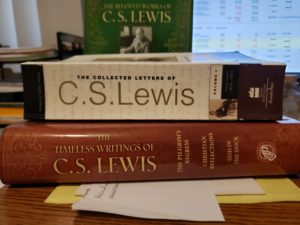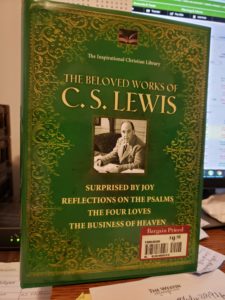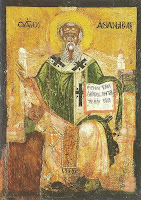
I love a library, be it large or small, new or old, plain or fancy. Little in life is better than finding stacks of books. Any time I can I go to a library. Any more I don’t check out a lot of books, but I still enjoy browsing, pulling them from the shelf, sitting and reading for a while until my allotted time is up. Or, sometimes I just pull out a magazine I enjoy and read that.
An online library is just as good—almost. The selection is typically better, if of books that are older. Reading is still possible, though perhaps not quite as enjoyable as getting out and reading from paper in my hands.

This week I had need of a library. I’m writing a Bible study. That’s my latest work-in-progress. Have I talked about that on the blog before? I’ll have to check to see if I did and, if not, schedule a post to describe the project. Briefly, it’s titled Acts Of Faith, and each chapter has a biblical story about someone who did something on faith and the difference that made in a life or in the world. The second part of each chapter talks about a Christian from after the Bible period who also did an act of faith that made a difference.
The chapter I was to write was about the conversions of Zacchaeus and C.S. Lewis. Zacchaeus’ was fairly easy. I knew Lewis’ would be easy because I had read about it years ago in his book Surprised By Joy. How long ago? Maybe forty years? Long enough ago to know exactly what I was looking for but not so long that I had the book wrong. So, I go to my shelf where I keep my C.S. Lewis books and…no copy of Surprised By Joy is present.
No problem. It must be in the storeroom where I have a bookcase of literary books. Nope, not there either. No problem. It must be upstairs in one of two places where we keep shorter, inspirational books. Nope, not there either. No problem. We have a built-in bookcase in the living room. I wouldn’t expect this book to be there, but it must be. Nope, not there either. That meant it had to be in a box in the storeroom. Finding it there would be an impossibly time-consuming task.
But then I thought, that was so long ago, perhaps I borrowed the book from someone or from a library. Yes, that must be it. That would mean I could check it out from a library here. I wasn’t planning on being close to one anytime soon, but I could go if needed. I checked on line card catalogs of my closest two libraries. Nope, they didn’t have it. The book is new enough to be in copyright so I knew I wouldn’t find it in an on-line library. Nothing to do but buy a copy. Through the miracle of e-books I could have a copy in hand in only minutes.
I went to two different online retail locations and found Surprised By Joy. Both had it as an e-book, but at a ridiculously high price. A book by a famous author can command a good price. I wasn’t willing to pay that, not right away at least. Let me look one more time in my library.
Yes, my library. You see, we have way too many books in our house, maybe as many as 3,000. I need to get rid of some, but find that hard to do. For years I figured I’d read them in retirement. But retirement is here and I’m too busy writing to make a dent in the number of too-be-read books in the house. Yes, if I read two or three a month and then get rid of them, at some point I’ll see that dent being made. Until then, we have our own library.

I went back to the shelf that I checked first, the one where I thought the book should be. There were a number of C.S. Lewis books, which I saw earlier when I looked. Two of them I haven’t read, have barely opened. One, titled The Timeless Writings of C.S. Lewis, is a collection of his theological works pulled together by his estate. The other, The Beloved Works of C.S. Lewis, had four of his books, again collected and published by his estate. I looked closer at it, and the first book in this book was…Surprised By Joy.
Wow, I didn’t realize I had it! Pulled it from the shelf, spent about an hour reading in the places I remembered, and I had my information and quotes for the chapter. Another hour and I had the rest of the chapter written. An exorbitant price for an e-book avoided, progress made on my book.
So, I did find it in a library. It just turned out it was my own library.
